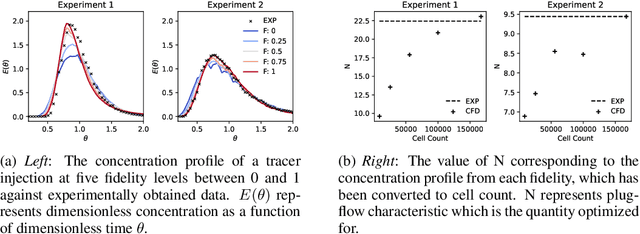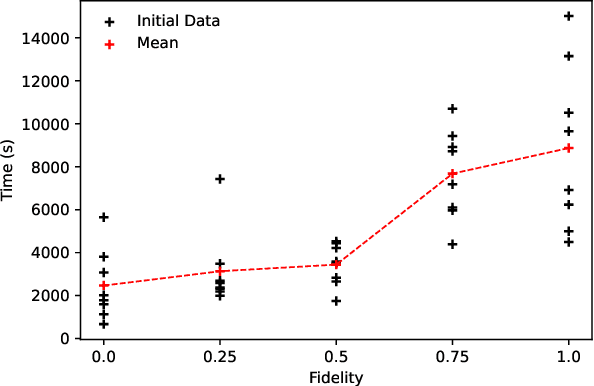Ehecatl Antonio Del-Rio Chanona
Deep Gaussian Process-based Multi-fidelity Bayesian Optimization for Simulated Chemical Reactors
Oct 31, 2022



Abstract:New manufacturing techniques such as 3D printing have recently enabled the creation of previously infeasible chemical reactor designs. Optimizing the geometry of the next generation of chemical reactors is important to understand the underlying physics and to ensure reactor feasibility in the real world. This optimization problem is computationally expensive, nonlinear, and derivative-free making it challenging to solve. In this work, we apply deep Gaussian processes (DGPs) to model multi-fidelity coiled-tube reactor simulations in a Bayesian optimization setting. By applying a multi-fidelity Bayesian optimization method, the search space of reactor geometries is explored through an amalgam of different fidelity simulations which are chosen based on prediction uncertainty and simulation cost, maximizing the use of computational budget. The use of DGPs provides an end-to-end model for five discrete mesh fidelities, enabling less computational effort to gain good solutions during optimization. The accuracy of simulations for these five fidelities is determined against experimental data obtained from a 3D printed reactor configuration, providing insights into appropriate hyper-parameters. We hope this work provides interesting insight into the practical use of DGP-based multi-fidelity Bayesian optimization for engineering discovery.
 Add to Chrome
Add to Chrome Add to Firefox
Add to Firefox Add to Edge
Add to Edge